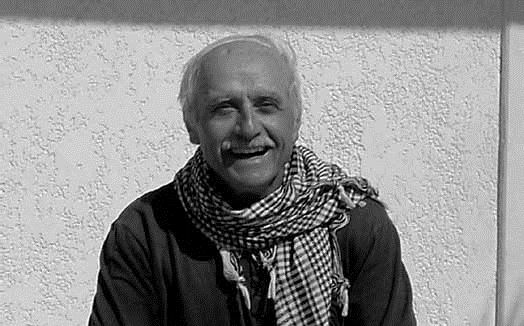The passing of Professor Wiktor Andrzej Daszewski on January 17, 2021, marks a symbolic end of another stage in the history of Polish Mediterranean archaeology. A stage no longer of a pioneering kind, but building on the achievements of the Master and mentor, the founder of the discipline in Poland, Professor Kazimierz Michałowski.
Daszewski rose to the challenge and for ten years, starting in 1981, he captained the ship which from then was called the Polish Centre of Mediterranean Archaeology with its seat at the University of Warsaw in Poland. He had all the predispositions to succeed: youth, management skills, knowledge of foreign languages, contacts and position in the international scientific community, respect of the local antiquities services in Egypt, Syria, Cyprus, Sudan, Tunisia and—no small matter—the support of a considerable group of archaeologists and specialists forming the Polish Mediterranean archaeology ‘family’ at that time. Thus, the development of Mediterranean archaeology in that difficult decade, from the outbreak of Polish freedom in 1981 through the years of martial law and the end of the communist era, was a joint effort led by Andrzej, always Andrzej to his colleagues and friends. He undoubtedly left his mark: on the newly created national “superstructure” of Centre, the overseas branch of which had existed and prospered in Egypt since 1959, as well as on a huge number of people whose professional lives were linked for so long to the Centre. I myself belong to this group.
He pursued his scholarly interests with the same dedication, excavating and lecturing on archaeology at a university level, primarily abroad. He was a classical archaeologist, fascinated by sculpture, and a great expert in mosaic art, to which he devoted several books and articles. He directed the PCMA UW excavations at Paphos in Cyprus for almost 40 years (his contribution was recognized with a honorary citizenship of the city of Paphos). However, he would probably want to be remembered most for his discovery of the site at Marina el-Alamein on the Mediterranean coast of Egypt. He spotted the site when bulldozers at a new construction site started annihilating the ruins, alerted the Egyptian Antiquities to the damage, obtained a research permit and went on to excavate it for 20 years, while coordinating a conservation project by Polish architects and restorers to protect and reconstruct this jewel of Greco-Roman architecture. The project continues to this day, although under a different leadership.
The last time he was in Marina was in 2007 and he remained a regular visitor to the Centre’s excavations in Cyprus until almost the last day. When in 2008 I started my own project at Berenike in Egypt on the Red Sea, he cheered me on with full enthusiasm, fired with an undying longing for more great discoveries, missing the life of adventure that had been his for so long. Archaeologists of his generation were as much scholars as travelers, explorers, and adventurers. He dreamed big—after all, he was already on his way to Yemen, the mythical Arabia, for an archaeological reconnaissance when geopolitics interfered.
He died almost exactly 40 years after his Mentor. His life achievement included building the foundations of the Polish Centre as an academic institution as well as outstanding discoveries in the field of Mediterranean archaeology. He enjoyed life to the hilt, aiming high at every stage and “elbowing his way up”, something that many resented. Acknowledging that what he did was as much for the common good as for his scholarly career was not easy for quite a few.
“The days, when we were heroes, pass so quickly into legend or oblivion,” wrote a one-time photographer of the Centre, Tomasz Szmagier, hearing the sad news. Those were hectic, turbulent and unforgettable days: the beginning of the excavation project in Marina el-Alamein, probably the most intense time in Andrzej’s life. He leaves behind a legacy that will probably, and despite everything, go down in legend.
Iwona Zych

